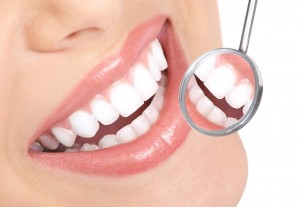
Receding gums can make you conscious about your smile and can affect your self-esteem. To say that it can be scary experience is only fitting. Luckily, there are several treatment options available at your dentist’s clinic to help fix this problem, one of which is dental bonding.
What Is Dental Bonding?
Dental bonding is a dental procedure that involves the application of a composite resin to repair decayed, chipped, fractured and discolored teeth. For aesthetic purposes, the bonding is created to be that of the same shade as that of a patient’s surrounding teeth.
The procedure is considered as one of the cheapest and least-intrusive dental procedures available today. Although often used for cosmetic purposes, dental bonding has several functional benefits too. For example, the bonding material can be used to close tooth gaps, and change the shape of the teeth. Additionally, it can also be used as a cosmetic alternative to fillings.
The bonding can also be applied to the exposed areas on the tooth’s root caused by gum recession. This can help provide necessary protection to the roots and prevent cavities from forming. Even better, the bonding can also help address any sensitivity issues that may be caused by the roots being exposed because of gum recession.
Furthermore, for aesthetic purposes, bonded composite fillings can also be used to mask darker yellow-colored roots found in gaps between the gums and the crowns of the bridge.
Is It A Permanent Solution?
Unfortunately, applying bonding at the gumline is more of a cosmetic and temporary solution than anything else. Case in point, your gums may have receded because you brush your teeth too hard. Or, your parents also had gum recession, so you were born with a higher risk for receding gums. Either way, dental bonding cannot solve both problems, and you’re better off discussing things thoroughly with your dentist if you’re looking for a permanent solution to your receding gums.
Other Treatment Options
Of course, dental bonding is but one of the many treatments available for gum recession, and is considered to be mostly just cosmetic. If your gum recession is caused by poor oral health, it’s more likely that you’ll need to work with a dentist who specializes in the prevention, diagnosis, and treatment of gum disease, otherwise known as a periodontist. This is because your teeth and gums might require a deeper cleaning known as scaling and root planning.
Although very rare, it’s also possible for those with gum recession to require surgical treatment, specifically a gum graft. Also done by a periodontist, the surgical procedure involves grafting the gum tissue to cover exposed root surfaces and prevent further complications.
If you’re only mildly affected by receding gums, then you don’t have to worry much. The dentist will simply help identify the cause and give you instructions on how to treat it.
If you want to minimize your risk for gum recession, then be sure to take care of your oral health. Use a toothbrush with soft bristles, be gentle on your teeth when brushing and flossing and wear a night guard if you grind your teeth. Also, visit Dr. George Kirtley as soon as you experience any kind of persistent pain. Call for an appointment today at 317-841-1111. Or visit the website at www.smilesbygeorge.com.
